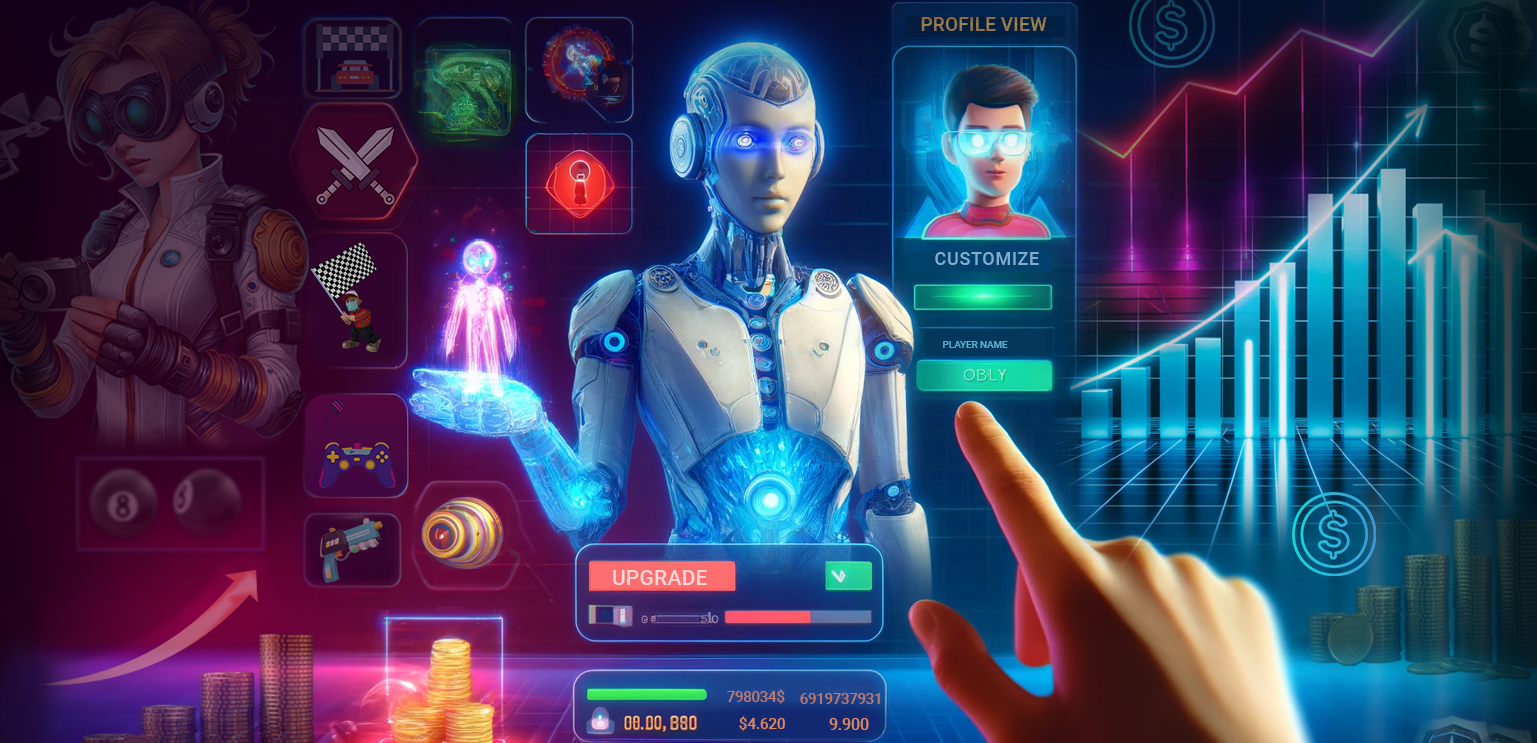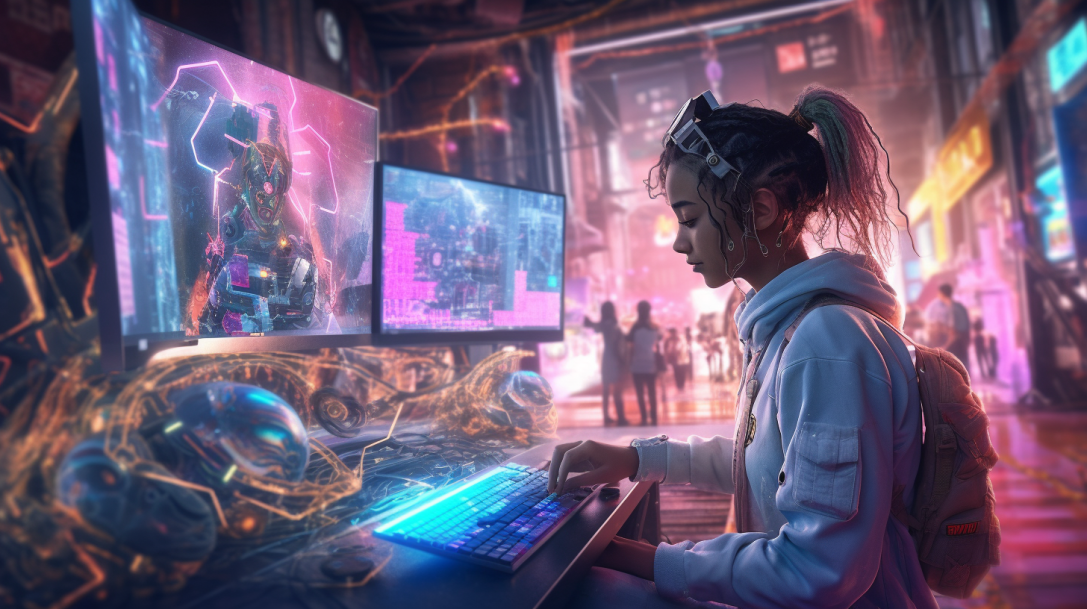Artificial Intelligence (AI) is revolutionizing the gaming industry, transforming the way games are developed, played, and experienced. AI plays a critical role in enhancing gameplay, creating realistic virtual worlds, and delivering more immersive and adaptive gaming experiences.
How Does AI Impact Gaming?
AI in gaming refers to the use of machine learning algorithms, decision-making systems, and behavioral modeling to build intelligent characters, dynamic environments, and personalized user experiences. AI is now deeply integrated into both the design and real-time execution of modern games.
Key Roles of AI in Gaming
Non-Player Character (NPC) Behavior
AI is widely used to create lifelike NPCs that can make decisions, adapt to player strategies, and offer more challenging and unpredictable interactions. Unlike scripted behaviors, AI-powered NPCs can react in real-time, making games feel more dynamic and engaging.
Procedural Content Generation
AI can automatically generate levels, maps, environments, and quests, reducing development time while increasing variety. This allows players to experience unique scenarios each time they play, enhancing replayability.
Personalization and Adaptive Gameplay
AI tracks player behavior to customize game difficulty, suggest missions, or recommend in-game purchases. Adaptive AI can adjust the level of challenge based on a player’s skill, ensuring a balanced and enjoyable experience for both beginners and experts.
Game Testing and Quality Assurance
AI-driven bots can test games at scale, identifying bugs, glitches, and balance issues faster than manual testing. This accelerates the development cycle and improves the final quality of the game.
Enhanced Graphics and Realism
AI-powered techniques like neural rendering and deep learning are used to create realistic animations, facial expressions, and environments. AI can simulate natural movements and improve visual details, contributing to a more immersive experience.
Voice Recognition and AI Companions
Modern games use AI for voice recognition, enabling players to control characters or navigate menus through spoken commands. AI companions can provide story-driven interactions, real-time assistance, and even emotional responses, making the gaming world feel alive.
Anti-Cheating Systems
AI algorithms can detect cheating behaviors in online games by monitoring patterns and spotting anomalies. This helps maintain fairness and integrity in multiplayer environments.
Considerations in Using AI in Gaming
While AI enhances gaming, developers must also address key challenges:
- Ethical AI Use: AI systems should ensure fair play and not manipulate players into unnecessary purchases.
- Bias in Game Design: AI models must be carefully designed to avoid reinforcing stereotypes or creating unfair advantages.
- Player Privacy: Tracking and personalizing gameplay should always respect user privacy and data security.
Conclusion
AI is reshaping the gaming landscape by making games smarter, more personalized, and more immersive. From creating believable characters to tailoring experiences for individual players, AI’s role in gaming continues to grow. However, as the technology advances, it’s essential to balance innovation with ethical design, player privacy, and inclusivity to ensure AI remains a positive force in the gaming world.







Leave feedback about this